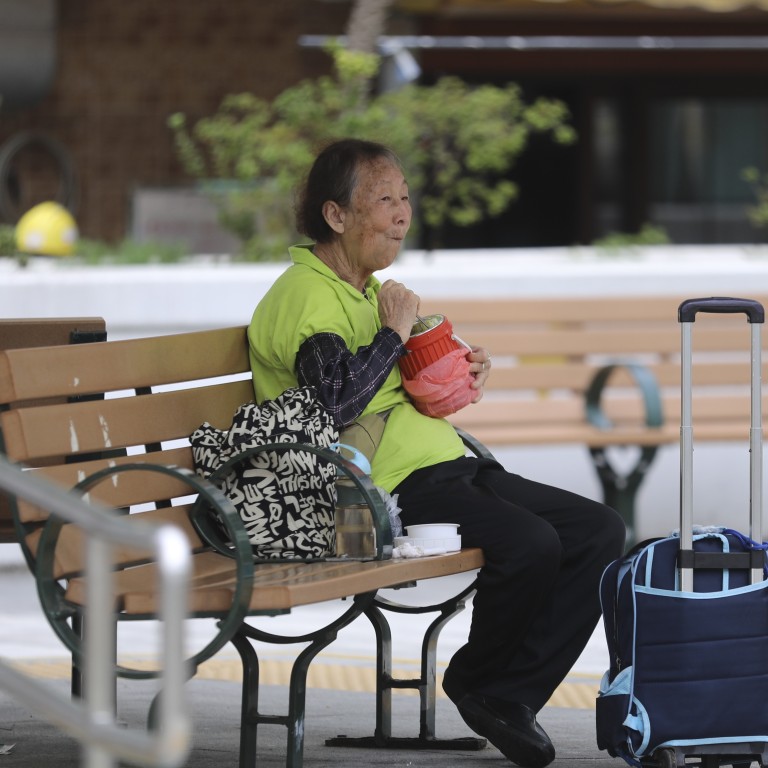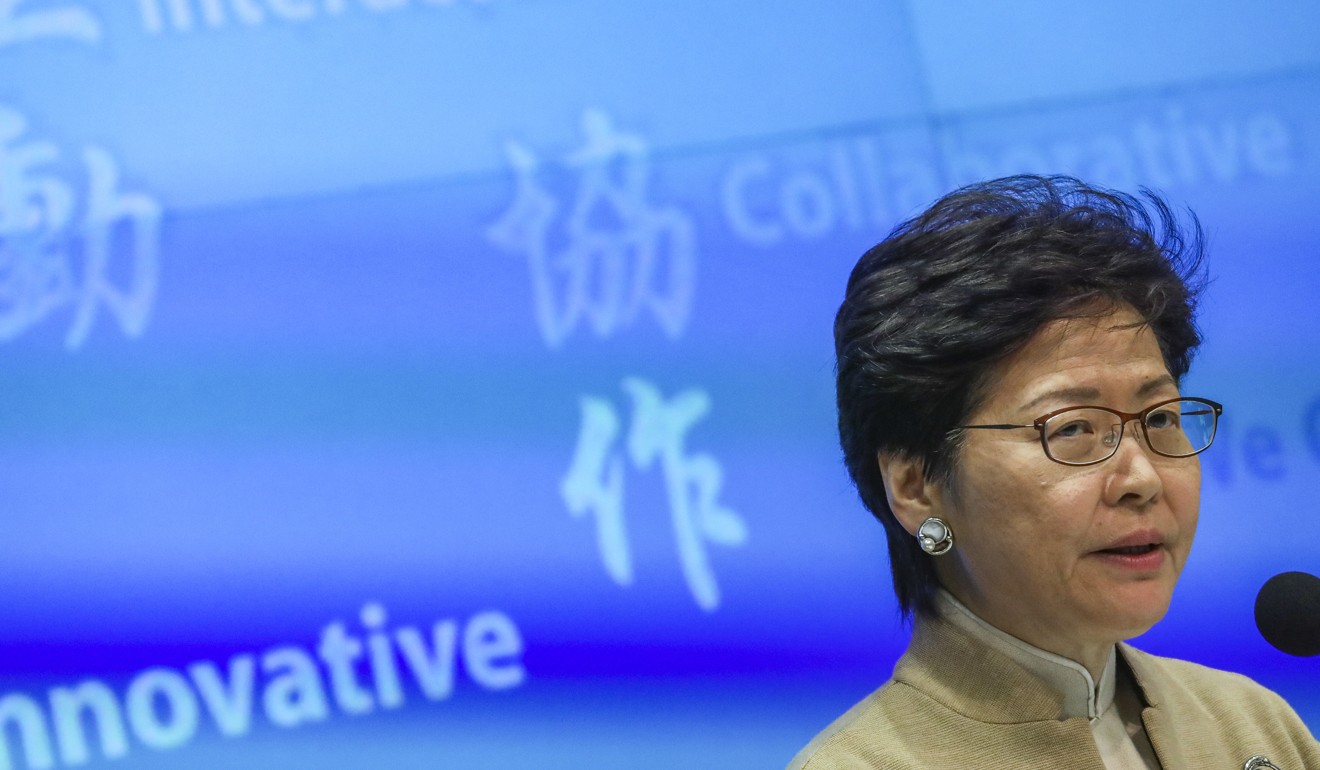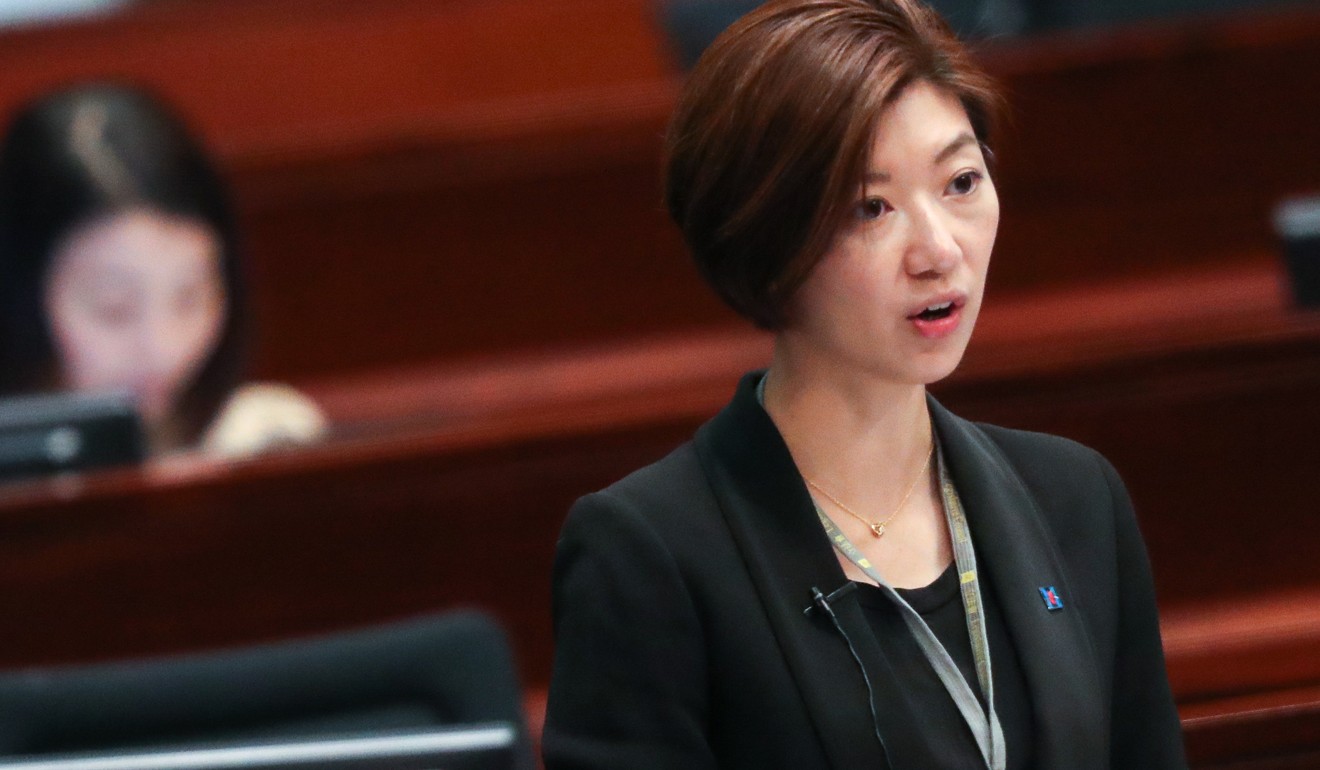
Who’s to blame for Hong Kong’s first major political crisis of the new year?
- Both the chief executive and lawmakers opposing cutbacks to elderly welfare payments are blaming each other for the fallout
Hong Kong’s leader has managed to ease her first major crisis of the new year by winning back the support of her political allies who turned against her over the unpopular decision to raise the age threshold for elderly welfare payments.
As pro-establishment lawmakers joined opposition pan-democrats in rebuking Lam, the chief executive countered that legislators themselves had approved of the policy change in last year’s budget bill. The row intensified as lawmakers argued that the issue should have been discussed formally with them.
Who should be held accountable?

How did it all begin?
The controversy blew up on Monday, as officials announced that the eligibility age for elderly payments under the CSSA scheme would be raised from 60 to 65 as of February 1, sparking a public outcry.
Three days later, Lam expressed “shock” at pro-establishment lawmaker Eunice Yung Hoi-yan’s question on whether she could withdraw the cuts, pointing out to the chamber that lawmakers themselves had approved the policy change in last year’s budget bill.
Lam’s response sparked anger from her traditional allies, who said it was unfair to suggest they had agreed with every single measure among the hundreds of items laid down in the bill.
Lam admits ‘room for improvement’ after fury over old-age payments
What is the origin of the threshold change?
The plan first appeared in the 2015 Population Policy Report by the Labour and Welfare Bureau, which stated it would “review the existing social security arrangements to see if they have the effect of disincentivising older persons from continuing to work”.
The age threshold increase was then included in the 2017 Policy Address, among a basket of social security measures including the introduction of the popular Higher Old Age Living Allowance.
Lam was then the city’s No 2 official as chief secretary.

After taking office as Hong Kong’s leader, she then followed the policy direction and included it in her budget address in February 2018, despite some opposition from lawmakers.
The actual clause to change the CSSA age threshold for elderly payments was not directly mentioned in the budget speech, but inserted into a 900-page booklet listing expenses and “matters requiring special attention” of every bureau.
That particular bit of information fell under the Labour and Welfare Bureau.
Carrie Lam is wrong to cut elderly welfare, but will she admit it?
Were lawmakers aware at all, about it?
In the Legislative Council’s welfare panel meeting in November, lawmakers from both camps endorsed a motion, tabled by pan-democrat Fernando Cheung Chiu-hung, urging the government to halt the change.
Those supporting the motion included Wilson Or Chong-shing, Poon Siu-ping and Kwok Wai-keung from the pro-establishment camp.
“We at many times and occasions expressed our opposition,” Kwok Wai-keung of the Federation of Trade Unions said, noting he had filed questions to the bureau regarding the budget. “But the government has been very slow in its response.”
He rejected suggestions of forcing the government to back down by opposing the entire budget bill.
“The budget is a whole package and we would not veto it just because of one single item. There are measures we support like the introduction of Higher Old Age Living Allowance,” Kwok said.
A source in the camp summed up its grievances: “We support the budget and will protect the government from a shutdown … We are supposed to be Carrie Lam’s allies, but her remarks shifted the blame to us.”
With district council elections coming up in November, the source admitted the camp faced enormous pressure from voters questioning the need for such a “heartless” policy.
Hong Kong’s rival Legco camps join forces to demand elderly welfare U-turn
How are legislators reacting to Carrie Lam’s comments?
Meanwhile, welfare sector lawmaker Shiu Ka-chun’s motion calling for a review of the entire CSSA scheme, which he tabled months ago, provided a rare platform for cooperation between pro-establishment lawmakers and their opposition rivals to rebuke Lam. They passed a non-binding but politically significant motion calling for officials to shelve the policy on Thursday.
A government source admitted the development was unexpected, as the bureau had actually communicated with allies and the implicit agreement was to make the policy change a “low-profile” one.
The controversy has provided Lam’s critics with plenty of ammunition to accuse her of being insensitive and confrontational.
While her traditional allies have been appeased by her efforts to compensate those affected by the welfare policy change, they could still end up blocking Lam’s next contentious policy move – to adjust tolls to ease congestion at the cross-harbour tunnels.

